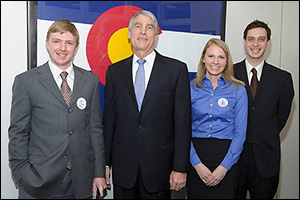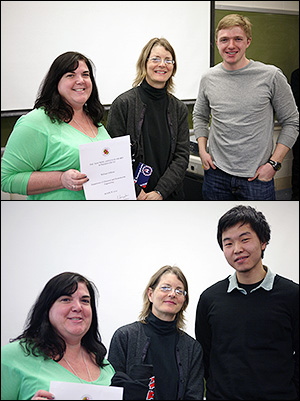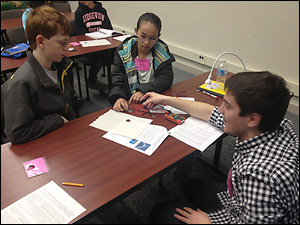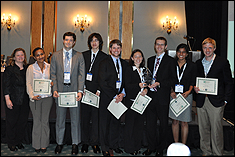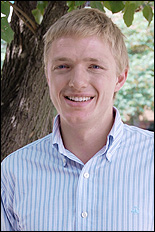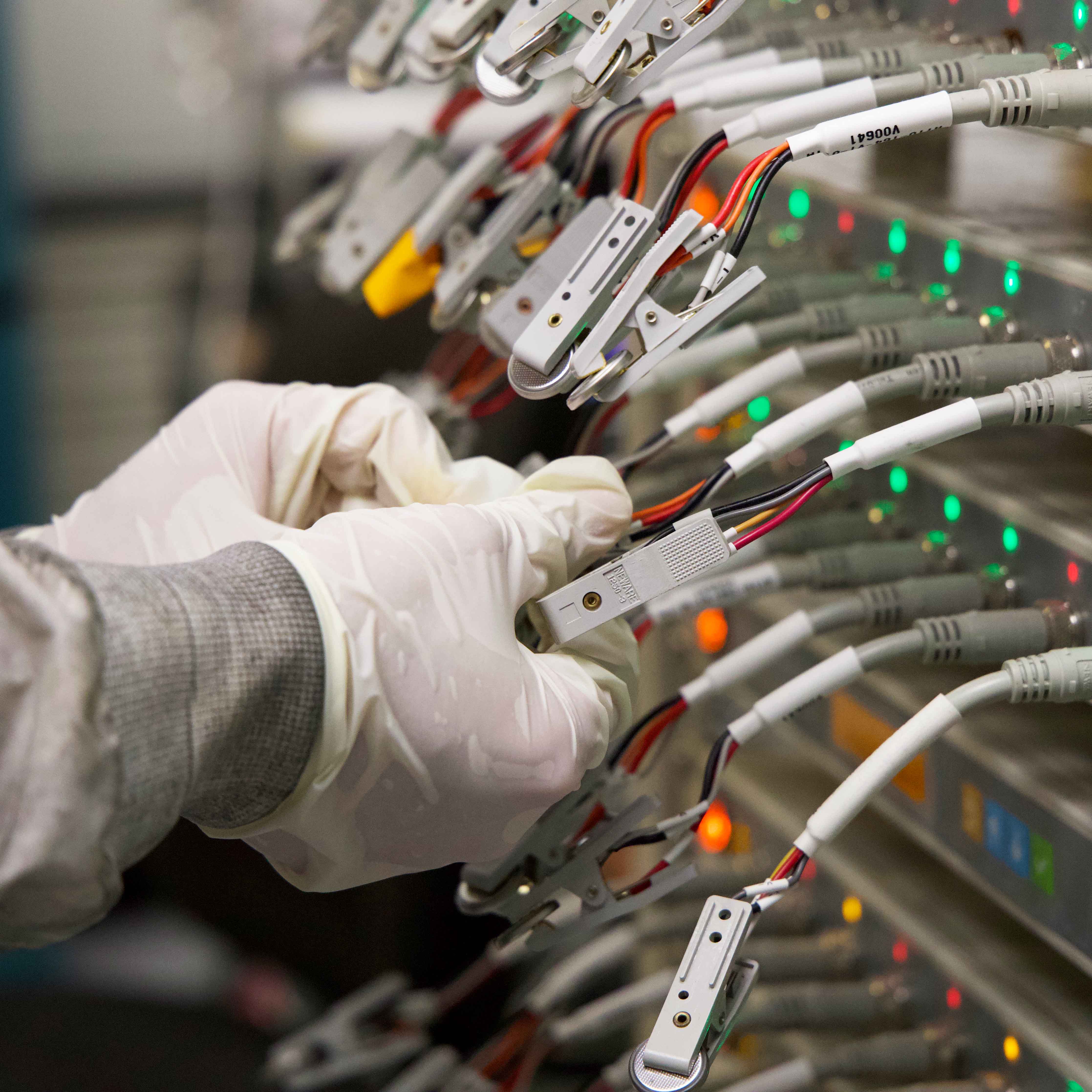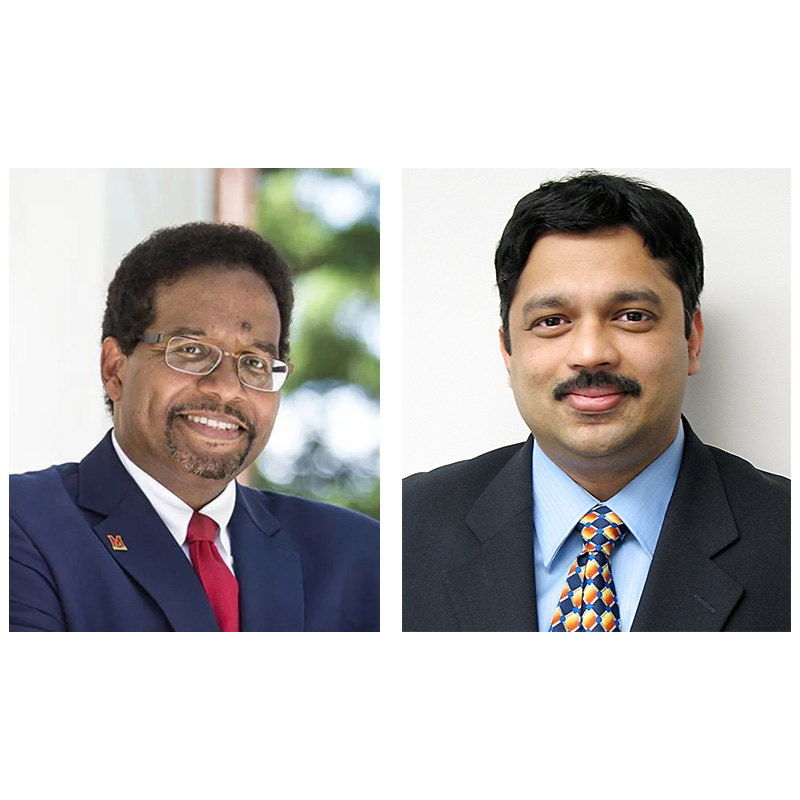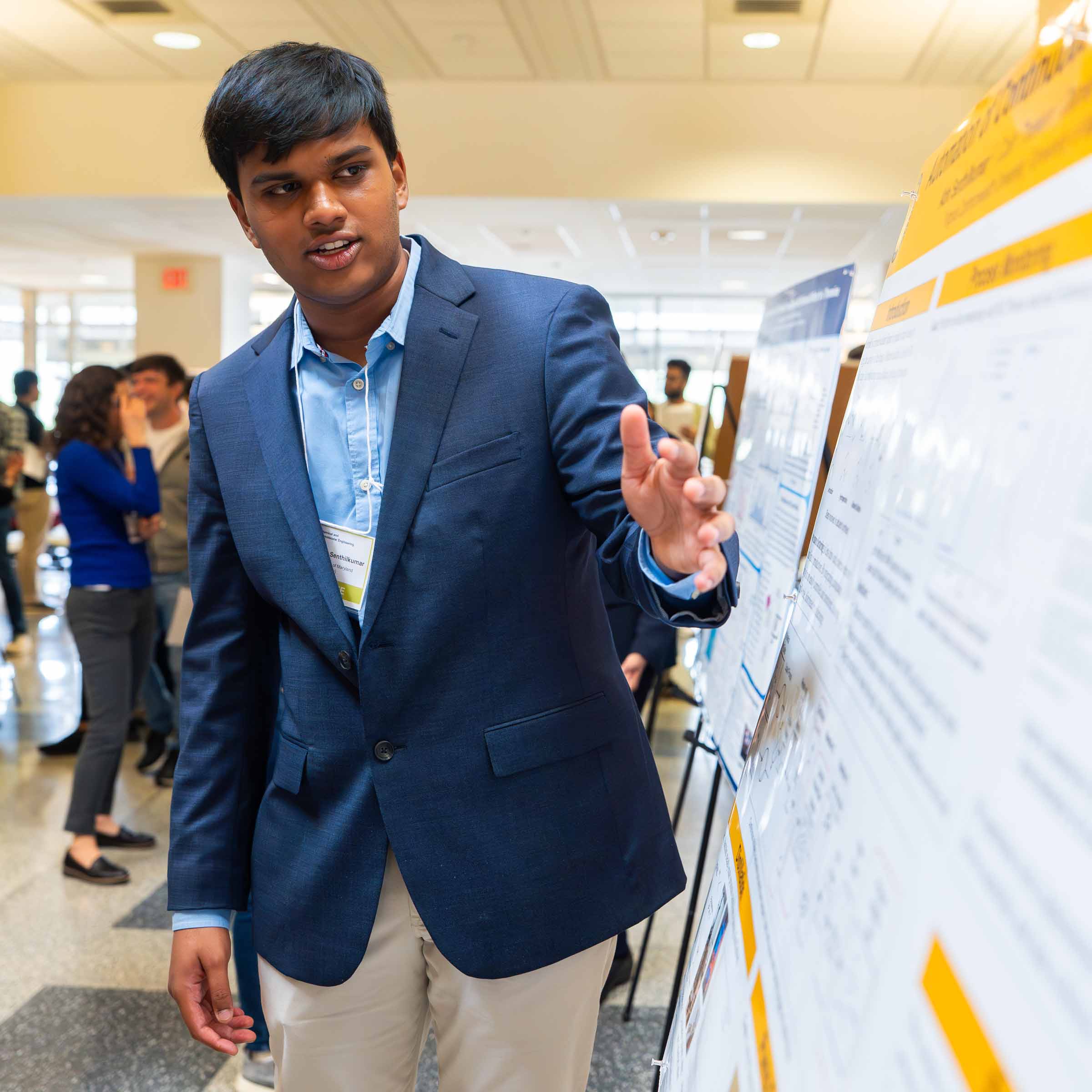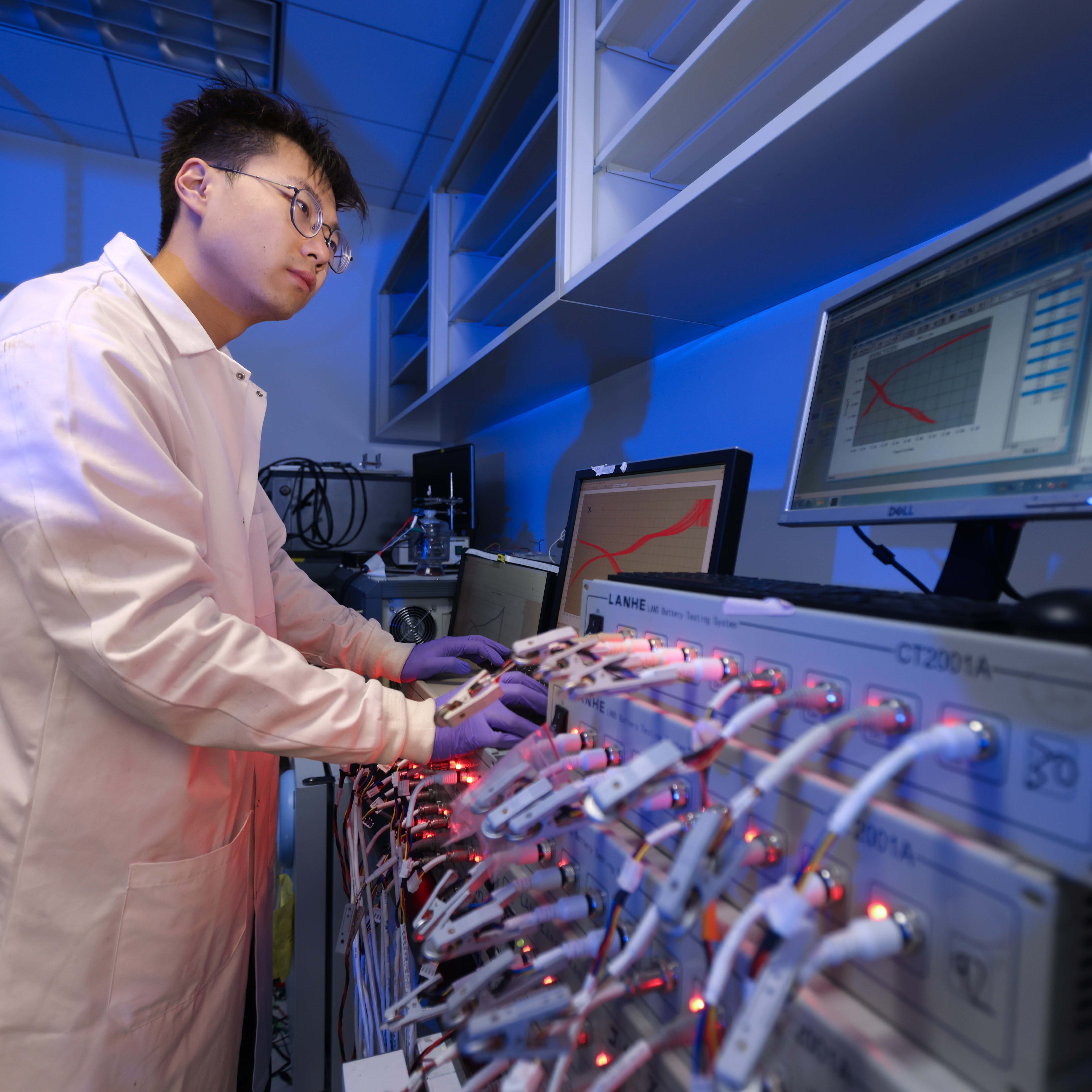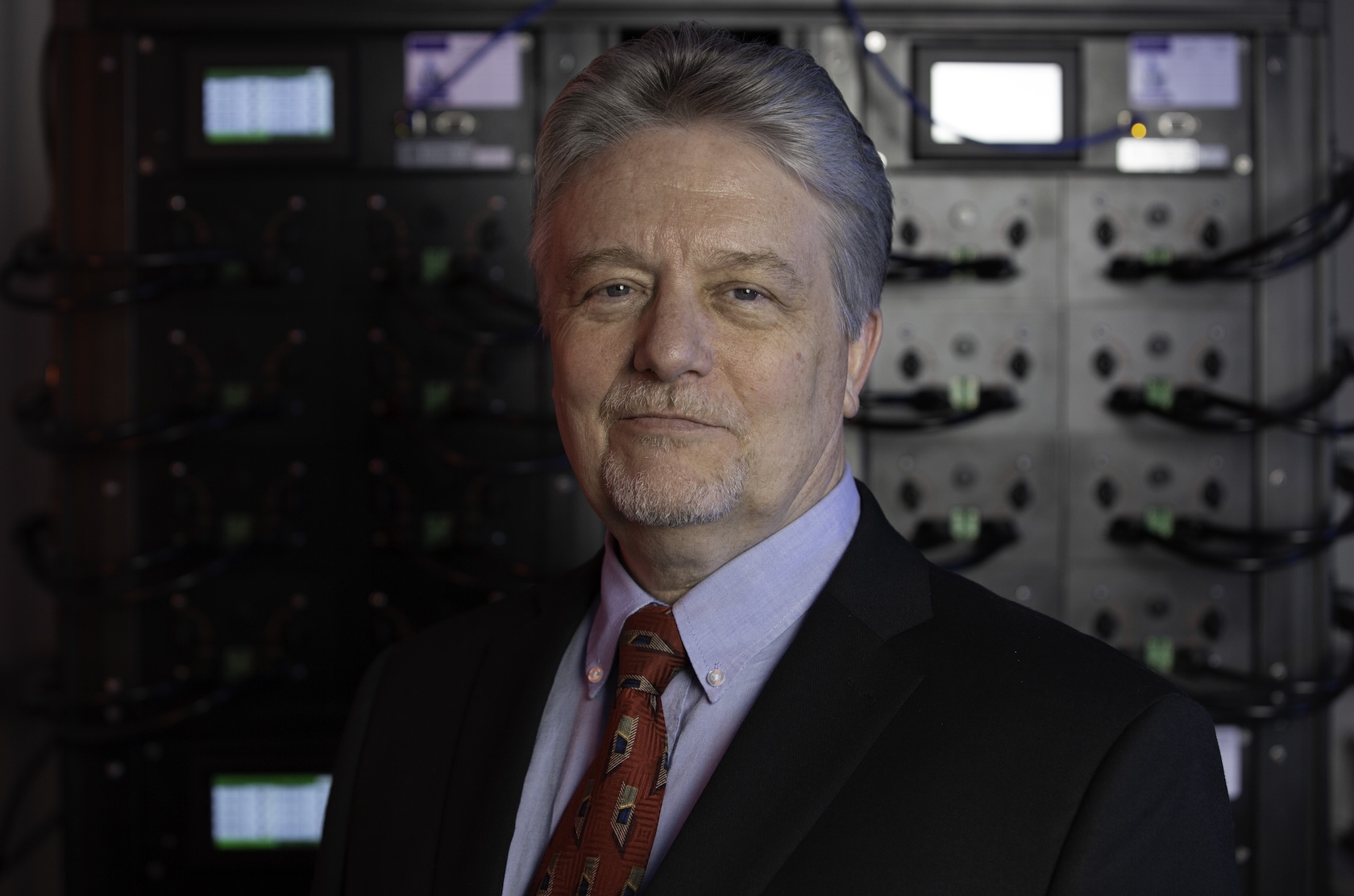News Story
Gibbons Receives ENGAGED Faculty Award
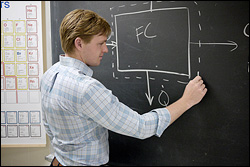
Will Gibbons (Ph.D. '14) creating a 'black box' sketch of a fuel cell system that uses methane as a fuel. The figure is part of a lecture in which he teaches students about mass balance and energy balance.
The Department of Chemical and Biomolecular Engineering (ChBE) extends its congratulations to William Gibbons (Ph.D. ’14), who received the Clark School’s ENGAGED Faculty Award for excellence in teaching. He was nominated for the honor by an undergraduate student enrolled in his Spring 2014 section of CHBE 302: Thermodynamics II.
The ENGAGED Faculty Award is a component of a National Science Foundation (NSF)-funded program called ENGAGE: Engaging Students in Engineering. The program’s goal is to increase student retention rate by implementing three strategies designed to improve their classroom and educational experiences: integrating everyday examples of engineering concepts into coursework, improving spatial visualization skills, and improving and increasing faculty-student interaction.
Gibbons was cited for being approachable and accessible, having high expectations of his students, providing advice and support on academic and extracurricular activities, and taking a genuine interest in and concern for his students, especially outside of class. He is currently teaching section of CHBE 101: Introduction to Chemical & Biomolecular Engineering.
Over the course of his academic career, Gibbons, who received his Ph.D. in May 2014, has been recognized for his dedication in the classroom and his outreach activities. In 2013, he received ChBE’s Teaching Assistant Award for his work as Professor Richard V. Calabrese's lead TA in ENCH 422 and 424, Transport Processes I and II. Earlier that year, he was part of a group from the University of Maryland's student chapter of the Electrochemical Society that participated in the Adventure in Science program at the National Institute of Standards in Technology. The program invites scientists and engineers to share their passion for their work with students aged 8–15 using hands-on activities.
Gibbons has also received numerous awards for his research, including a John and Maureen Hendricks Energy Research Fellowship, honors at the university’s Graduate Research Interaction Day, and a travel grant from the NSF to attend the Short Course and Workshop on Shale-Gas Monetization held in March 2014. Outside of the lab and classroom, he was part of the University of Maryland team that won the 2012 U.S. Department of Energy Hydrogen Design Contest for its proposal of a tri-generation system that would produce heat, hydrogen, and power for the College Park campus.
Published June 11, 2014
